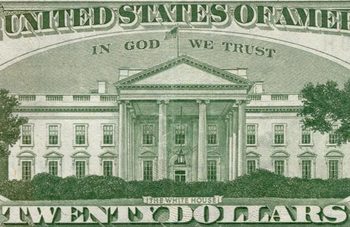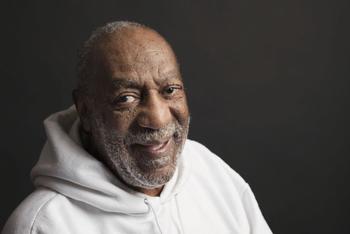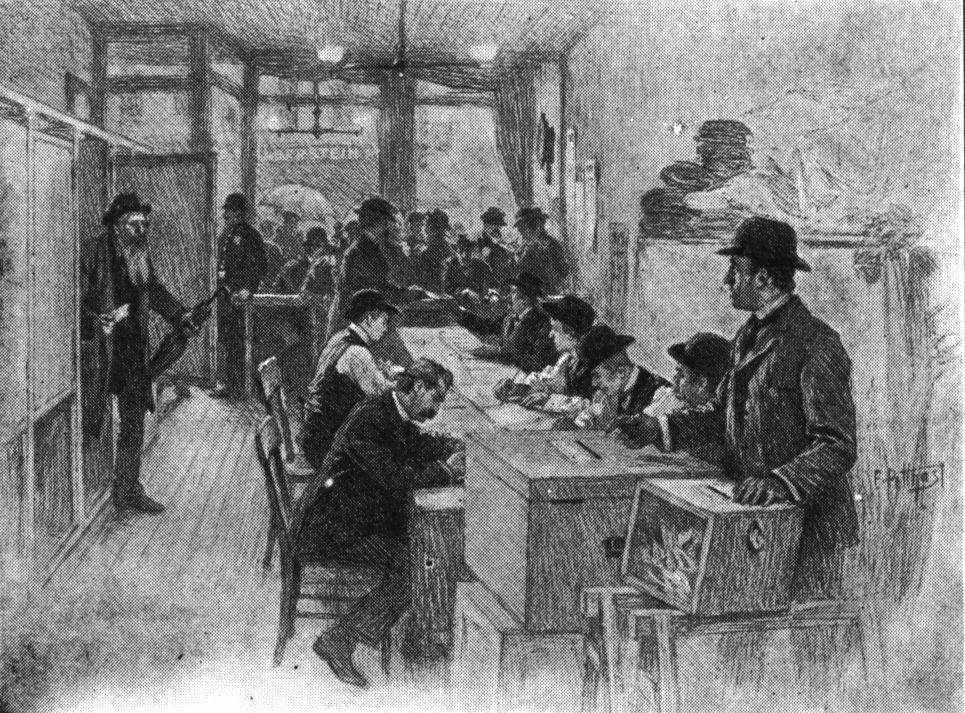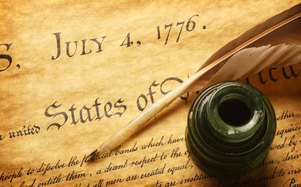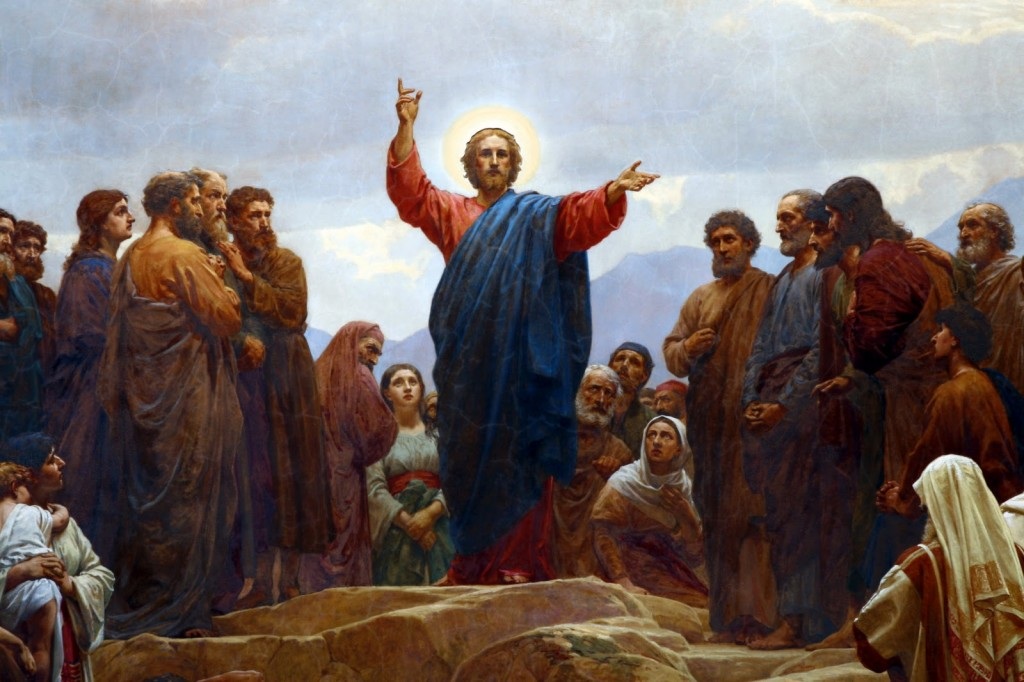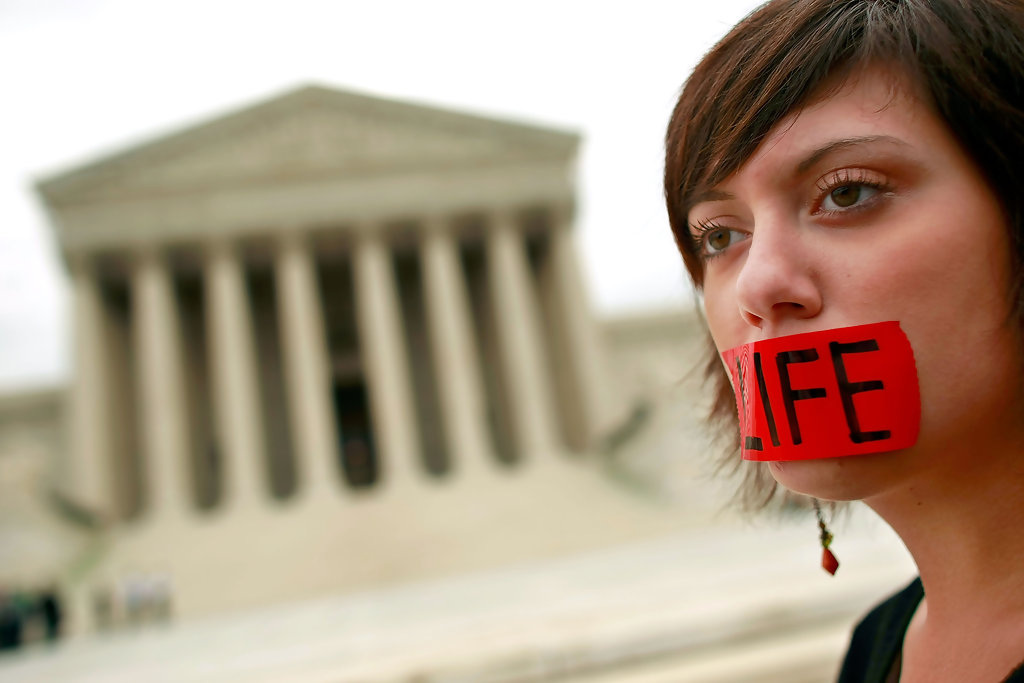And I'm certainly not going to tell you to vote for Hilary. What I am going to do is write down the principles I believe we have in Scripture when our nation is faced with such a choice as is before us today, and what I plan to do in light of them.
But before I do that, let's go in reverse order as to why I'm not going to tell you to [fill in the blank]:
However, I need to be clear up front that, from a constitutional stand point I don't believe having it on our money in any way violates the First Amendment (if history means anything). If we were to take into consideration the context under which the First Amendment was written, it was not at all separating church from state in the sense of separating religion and state. It was simply declaring that congress (at the federal-level) did not have the right to establish a national Christian denomination. Even after the ratification of the Bill of Rights, many states had their own state religions (read "denominations") at the state-level of government.
To say that Congress (at the time) was saying religion had no place in government at all is really to just dismiss history and context all together. We won't get into that here, but if you're interested I'd recommend the following for starters: Confusing Vengeance with Just Defense: A Response to John Piper's Discouragement of Armed Christians12/28/2015 "Exhorting the lambs to carry concealed weapons with which to shoot the wolves does not advance the counter-cultural, self-sacrificing, soul-saving cause of Christ."
However, in a recent post, he has made a terrible mistake in regards to advocating an unbiblical view of Christian ethics in the social sphere. This has been responded to greatly by several people (most notably for me was Dr. Joel McDurmon's response: A biblical response to John Piper’s denial of the Right to bear Arms.)
And while I've written on this issue before, since the Washington Post has now also picked up Piper's discouragement for armed Christians, I feel the need to reach people in my own sphere of influence (however small that may be) in pointing out some of Piper's inconsistencies that must not go unnoticed.
As Christians, we need to presume he is innocent until proven guilty.
As the number of individuals accusing Bill Cosby of rape and/or other sexual offenses has reached 55, there's a large part of the public (including Christians) who are determined that that's plenty of evidence to determine his guilt. Cursed be anyone who perverts the justice due to the sojourner...
With the threat of undercover terrorists it seems a little difficult to sort out. I get that.
But on the other hand - while I realize there are still practical issues to wade through carefully - if we turn to God's Word where it actually speaks to socio-political ethics - it does seem to clear up pretty well what our obligations are. So what are our obligations? Greater love has no one than this, that someone lays down his life for his friends.
His lament was for both of them (2 Sam. 1:23): Jonathan, who was like a dear brother to him (2 Sam. 1:26), and also Saul (2 Sam. 1:24), who tried to kill him (1 Sam. 19:1, 20:33). David lamented and was grieved over both of their deaths that occurred as a result of the fallen-world calamity we call war.
People feel pain. The loss of loved ones and even the loss of past enemies can reduce the strongest of men to tears beyond counting. And I say again, this is no small thing. War is not a trivial matter. In the words of one of my good friends: "War is a hellish death machine, an unfortunate consequence of fallen man's condition." I said, "You are gods, sons of the Most High, all of you;
Herod the Great is a prime example of an unjust ruler. It wasn't that his power was being threatened that spurred his unjust decree to kill all children two years of age or under (Mt. 2:16). It was that he thought of it as "his" power at all. He was in a role appointed by God to act under God's authority carrying out God's vengeance upon evildoers (Rom. 13:3-4). Ignoring that, he carried out his own vengeance on innocent lives.
While the Bible is certainly not a "textbook" on how to vote, I believe it has clear ethical standards that are worthy of our attention when going into the voting booth. Whether you're voting for a candidate or an issue there are always moral implications that go along with how you cast your ballot.
Of course one blog post won't suffice for all the different situations; but I think it's doable and relevant to lay down some practical considerations in the area of levies regarding property taxes. These generally appear on many local election ballots, and I believe the Bible has some clear principles and implications for this that are at least worth considering prior to next Tuesday... Consequently, in the high court of God our only escape from His just judgment for our sins is for us to place our trust in the Lord Jesus Christ, who - though He was sinless - laid down His own life for His sheep, so that those who believe in Him will have life eternal (Jn. 10:11, 20:30-31).
But regarding the court of humanity, the lives of John Crawford III and Angela Williams, were innocent and not deserving of death. And I think it is important to remember this fact that two innocent lives were ended in this tragedy. The reason I regard this a tragedy is because they simply did not deserve to die. And yet one of them was shot and killed on sight, while the other, suffering from a heart condition aggravated by the events, died as a result of the shooting. It is in times like these where we cannot simply dismiss the events as a tragic loss and move on with our lives. Innocent people were killed. The whole community, along with the families of John and Angela, are, or should be, crying out, "Where is justice?"
On the other hand, I also believe there were many more moments in her speech, which came through quite clearly, that we would do well to reject - in light of Scripture.
Even in my lay-level reading of the document it seems that a general survey of the Declaration of Independence will provide us with at least two things to consider during this time of year - and especially during this time of our own nation's history.
These two things will provide (what I believe to be) some thoughtful considerations of which to be mindful. So it's the 4th of July - Independence Day! What really was it from which we were declaring our independence? And by what authority were we doing so? Let's consider... For godly grief produces a repentance that leads to salvation without regret,
While non-graphic, I still caution you on watching the video because you're in essence witnessing a murder. But I probably suggest you read the article (which has the same message as the video but just goes into more detail of the background), in that this post will basically just be responding to it.
The first question I had after reading the article is how does a Christian respond to something like this? Well I'm sure there are many Biblical ways to respond. For my part, there were two main things that stood out to me, her neglect of the child's perspective, and her misunderstanding of the nature of guilt.
Now there's nothing scientific about this next statement (that is, I haven't conducted official research), but it seems to me that many Christians are under the impression that the mission of the church is merely the conversion of souls (to evangelize). But that is cutting short drastic responsibilities given to the church.
True the church, as a body, is called to evangelize. But the task Christ gave His apostles is far more encompassing:
What I am advocating is that believers in Christ ought to understand the significance of abortion, that they have an obligation to do something about it, and that they are able to do something about it.
To be sure, what each believer does to contribute will look different, just as it would in stopping sex-trafficking and other terrible crimes against our neighbors(1), but it is still true that all who are in Christ have an obligation to love their neighbors (Gal. 5:14). And this means all Christians have an obligation to do something about abortion. 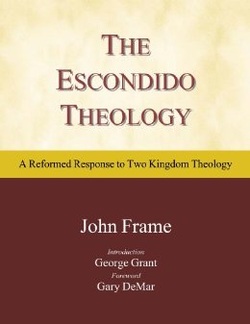 A Biblical Response to Two Kingdom Theology Here is a very interesting but very important work by Dr. John Frame. The book consists basically of several very long, very thoughtful book reviews of authors who've come from the Westminster Theological Seminary in Escondido, California. Based on the works they've produced Frame makes a very compelling case that they've developed their own "version" of Reformed theology particular just to the Escondido school. Unfortunately, as Frame goes on to show, their "version" is not truly standard Reformed theology. Furthermore, when seen through a Biblical analysis, it is at many points unbiblical theology. Taking on about a half dozen authors (including such authors as Michael Horton, R. Scott Clark, David Van Drunen, Meredith G. Kline, and Darryl Hart), Frame shows review by review how their particular outlook is simultaneously (1) not in line with standard Reformed theology, (2) particular only to the Escondido school, and (3) not at all a truly Biblical outlook. The main common denominator between the Escondido proponents is their "Two Kingdom Theology" whereby they teach in essence that it is not the church's responsibility or call to try to influence culture or society much in any way. While the exact opposite of this can be seen throughout Frame's Theology of Lordship series (and many other Reformed works by other Reformed theologians and teachers), in this work he makes a very concise application of that theology by reviewing selected works of these Escondido authors. |
Categories
All
|

